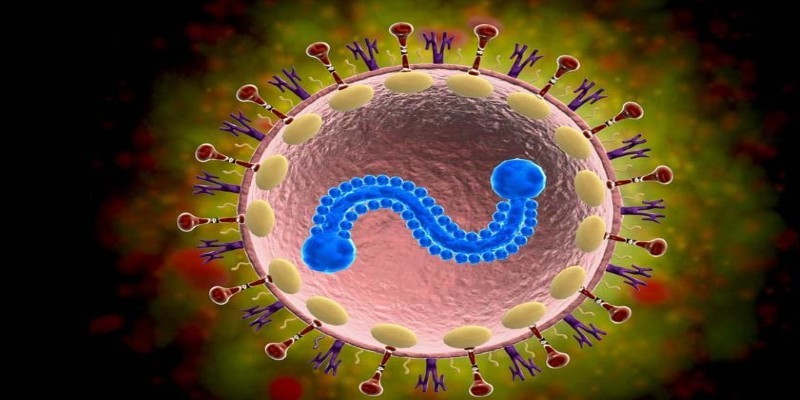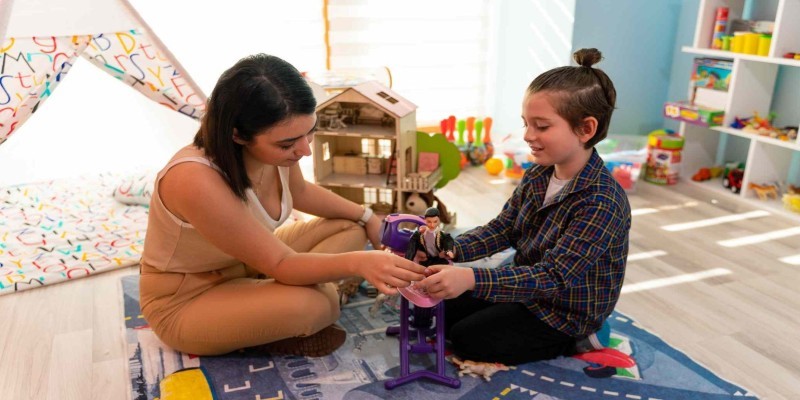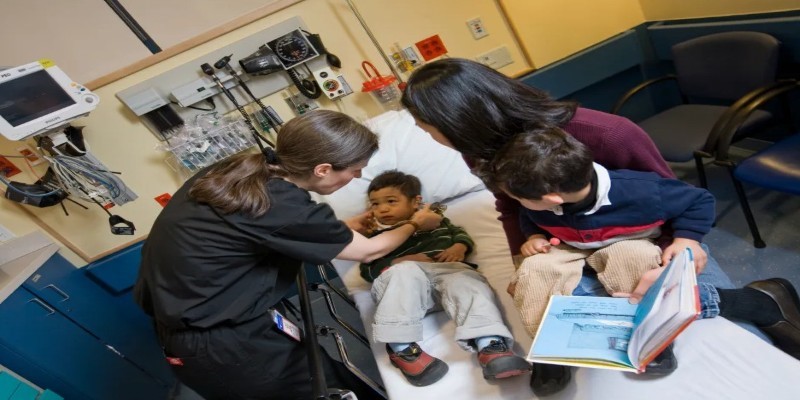
Advances in Pediatric Care: What’s New in 2025
 Health & medical treatment
Health & medical treatment Pediatric care has seen significant developments in recent years, driven by technological advancements, medical research, and a deeper understanding of child health. These changes have shaped how healthcare professionals diagnose, treat, and manage a variety of childhood illnesses, injuries, and developmental challenges. In 2025, these advancements will be more impactful than ever, bringing new treatments, technologies, and approaches that prioritize the health and well-being of children.
Pediatric care has seen significant developments in recent years, driven by technological advancements, medical research, and a deeper understanding of child health. These changes have shaped how healthcare professionals diagnose, treat, and manage a variety of childhood illnesses, injuries, and developmental challenges. In 2025, these advancements will be more impactful than ever, bringing new treatments, technologies, and approaches that prioritize the health and well-being of children.
Personalized Medicine And Genetic Advances
One of the most significant breakthroughs in pediatric care is integrating personalized medicine. In 2025, healthcare providers will increasingly use genetic testing and genomic sequencing to tailor treatments for children with genetic disorders or chronic conditions. This shift toward precision medicine allows for more accurate diagnoses and more effective treatments, as doctors can better understand the genetic makeup of diseases that affect children.
For instance, in oncology, genomic testing has become vital in identifying the specific mutations responsible for pediatric cancers. By targeting these mutations, treatments are becoming more precise, improving survival rates and reducing side effects for young patients. Pediatric genetic counselling is also evolving, offering families insights into potential hereditary risks and guiding them through complex treatment options and family planningdecisions.
Advances In Neonatal And Pediatric Care Technology
Technology continues to transform pediatric healthcare. One notable development area is advanced imaging techniques, which help doctors diagnose conditions earlier and more accurately. Technologies like high-resolution MRIs, advanced ultrasound imaging, and point-of-care ultrasound are now routinely used to assess a wide range of pediatric conditions, from neurological disorders to heart defects.

In addition, pediatric care has benefited from innovations in minimally invasive surgery. Techniques like laparoscopy, which involve smaller incisions and the use of cameras and robotic systems, allow for quicker recoveries, reduced risks of infection, and less pain for children. These minimally invasive approaches are now being used for a variety of surgeries, including gastrointestinal procedures and heart surgeries.
Another breakthrough is using Artificial Intelligence (AI) to diagnose pediatric conditions. AI tools are increasingly used to interpret medical data, such as medical imaging and lab results, with incredible speed and accuracy. For example, AI algorithms are helping doctors identify rare diseases in infants or detect early signs of developmental issues that might otherwise go unnoticed.
Immunizations And Disease Prevention
Vaccination remains one of the most potent tools in pediatric care. This year, continued progress in immunization development is improving the prevention of infectious diseases that once caused widespread harm to children. New and updated versions of existing vaccines play a critical role in preventing diseases like pneumonia, meningitis, and respiratory infections.

A significant focus in immunization research has been developing more effective vaccines for childhood respiratory diseases, particularly RSV (Respiratory Syncytial Virus), a leading cause of hospitalization in young children. Researchers have made significant strides in developing vaccines to prevent RSV in recent years, which could significantly reduce the burden on pediatric hospitals during flu and cold seasons. Additionally, the global response to COVID-19 has accelerated the development of new vaccine technologies, and many of these innovations are now being applied to other diseases affecting children.
Pediatric Cardiology And Heart Health
Advancements in pediatric cardiology have transformed the management of congenital heart defects, which affect around 1 in 100 newborns. Now, doctors can access better diagnostic tools, such as advanced echocardiography and genetic testing, that help identify heart conditions earlier and more accurately. Early detection allows for timely interventions, significantly improving the outcomes for children born with heart defects.

In addition to diagnostic advancements, treatment options have also improved. For children who require surgery for heart defects, the use of minimally invasive procedures and robotic surgery has reduced recovery times and minimized the risks typically associated with open-heart surgeries. Moreover, new medications are making it easier to manage heart conditions without invasive procedures.
Innovations in pediatric cardiology include the development of specialized pacemakers and implantable devices designed specifically for children. These devices are smaller, more adaptable, and have longer battery lives, ensuring better care for young patients with arrhythmias or other heart-related issues.
Mental Health And Neurodevelopmental Disorders
Pediatric care in 2025 is increasingly attentive to children's mental health and neurodevelopmental needs. The rising awareness of conditions like ADHD, autism spectrum disorders (ASD), and anxiety has led to better screening, earlier diagnoses, and more effective treatments. Children's mental health is now recognized as just as important as physical health, and as a result, there has been a surge in resources for pediatric mental health.

A key advancement is the shift toward integrating mental health care into routine pediatric visits. Paediatricians are now trained to screen for behavioural health issues during regular check-ups. In addition, the field of neurodevelopmental disorders has seen the introduction of more effective therapies, including targeted behavioural interventions and medication designed to help children with conditions like ADHD or ASD manage their symptoms.
Telemedicine has also become a game-changer for pediatric mental health care. With many families in rural or underserved areas, telehealth options make it easier for children to access therapy and support, regardless of geographic location. Virtual consultations have become an essential tool in providing ongoing care for children with chronic mental health issues.
Pediatric Emergency Care And Trauma Management
In pediatric emergency care, there have been significant improvements in how children are treated for trauma and critical conditions. Pediatric trauma centres are increasingly equipped with advanced tools and specialized personnel trained to handle the unique needs of young patients. For instance, pediatric emergency departments are now equipped with equipment specifically for children, such as smaller-sized medical instruments, pediatric-friendly medications, and age-appropriate diagnostic tools.

In addition to these improvements, innovations in trauma management have significantly reduced fatalities in cases of severe injury. New protocols and advances in resuscitation methods, including specialized pediatric CPR techniques and faster deployment of medical resources, have improved survival rates for injured children.
Conclusion
Pediatric care is set to make even more significant strides as we approach 2025. The healthcare landscape for children is evolving rapidly from personalized medicine and cutting-edge technologies to improved mental health support and advances in chronic illness management. As these advancements continue to shape the future of pediatric care, the focus remains on providing children with the best possible start in life, ensuring they receive the tailored, timely, and effective care they deserve.
